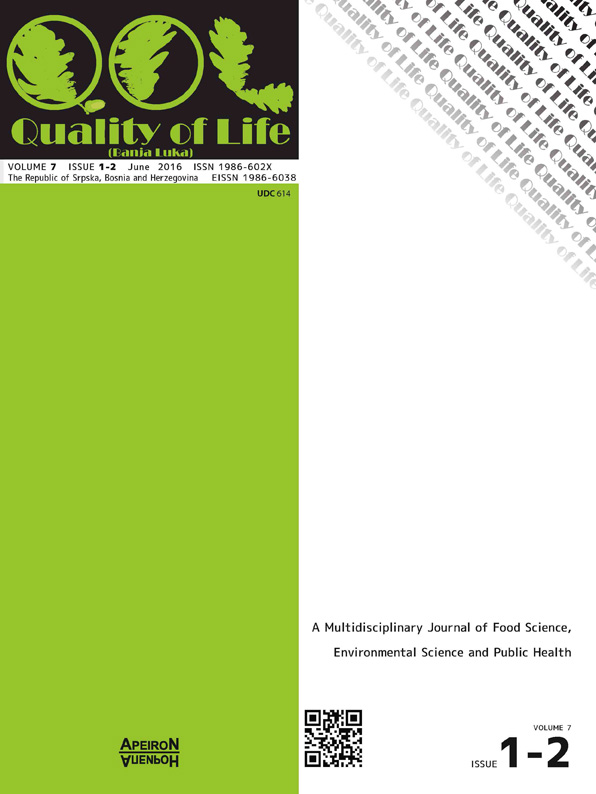Removal of Ni(II) Ions From Aqueous Solutions by Nanoporous Material
DOI:
https://doi.org/10.7251/QOL1601029JAbstract
The novel trends in green separation processes impose the need for application of natural, low-cast and high-efficiency selective adsorbents, such as natural zeolite, within the processes for the treatment of drinking water supplies. Lately, nano-porous inorganic sorbents represent an ongoing trend for elimination of heavy metals from water resources. In the frame of this work, the nanoporous material, clinoptilolite,was applied for removal of Ni(II) ions from water resource. The experimental results were obtained in a laboratory scale batch glass reactor with continuous stirring at 400 rpm. The effects of the mass of the nano-porous adsorbent and the initial pH of the solution were studied to optimize the conditions for maximal removal of Ni(II) ions. MATLAB/Curve Fitting Toolboxwas implemented to determine the adequate adsorption isotherm as well as to optimize the equilibrium state of the investigated system.Downloads
Published
2016-06-30
Issue
Section
Чланци
